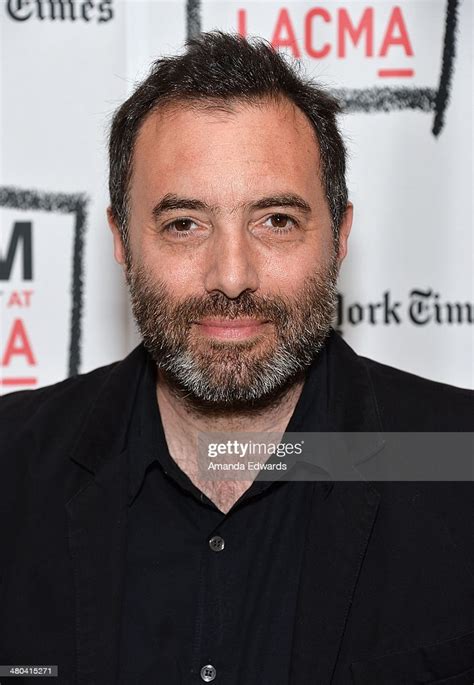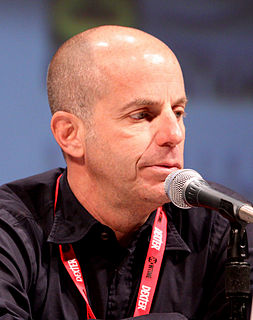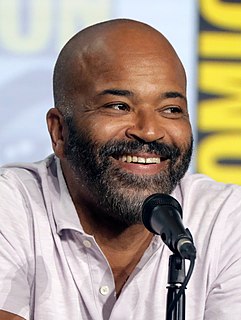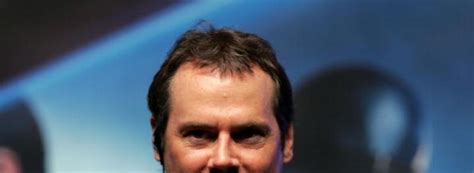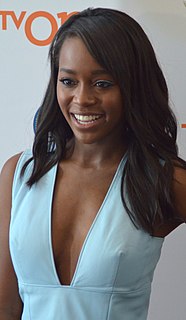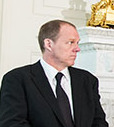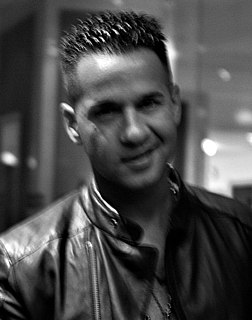A Quote by Judd Apatow
I test the movies a lot, and if the audience says they love the movie, we know we're on the right track. And if they tell me they hate it, I try to figure out what I've done wrong. But every time out, the audience wants me to go deeper, they want to know more about the characters, and they don't want these movies to be shallow. So they really urge me to tell them a complicated story, and then when I do so, they're thrilled
Related Quotes
TV shows are great right now in America. I find myself - and I hate to admit it - but we watch more TV than we go to the movies. As a creative person, you want to be creative, you know? You don't want to constantly wait around - a lot of movies fall apart, or there's just not as much out there as there used to be. Or there are more actors. I don't know. But movie stars are doing TV. And when they're asked about it, they say they love it. Dustin Hoffman, Glenn Close. So it can't be that bad.
We're all so jaded. We've seen so many movies. We know what's going to happen in every single movie. I mean, there are some movies where I'm like why do I even need to keep watching? And so, if you can make a movie in which you're completely surprising the audience left and right, and left and right, then you've won. If a jaded film critic or reporter or an audience is like, "I didn't see that one coming," that to me is like a victory.
The only good teachers for you are those friends who love you, who think you are interesting, or very important, or wonderfully funny; whose attitude is: "Tell me more. Tell me all you can. I want to understand more about everything you feel and know and all the changes inside and out of you. Let more come out." And if you have no such friend,--and you want to write,--well, then you must imagine one.
In this day and age, when there are so many people creating work online and writing their own shows, I wouldn't tell another actor, 'If you can do anything else go do that.' I would tell them to figure out the story they want to tell, to figure out what artists inspire you and why, and then figure out a way you can create that for yourself.
Really there's different scales of stories. Sometimes you want to tell one that 20, 30, 40, 50 million people will want to see and hear. Sometimes you do one that you know 150 will want to see on one night. As long as you're telling the right story for the right audience and they're getting something out of it it's essentially the same feeling to me.
I know the movies that I've liked, and I know the experience that they've given me, so the goal is always to try to create a movie that I would like myself and that would knock me out, challenge me or intrigue me in some way. That's been my criteria for figuring out what I want to do, or also when I'm writing something or creating a scene.
I think when I start out writing, I always try to write the version of the movie that I want to go see. I don't mean it in a way that ignores the audience, but I really set out to make a movie that I want to see and that, hopefully, other people will want to go see it. So whatever's amusing to me, I guess, I throw it all in there.
I am fairly embraced by the Hollywood community, and I love making movies and I love acting, but I'm not real crazy about the Hollywood system. So the fact that they embrace me is a shock to me because I tell them to kiss my ass all the time. I don't understand why they haven't thrown me out on my ear. The other thing is I don't participate much. I have very few friends within the movie community. I hang out with some guys I've known forever. They're all broke and eat me out of house and home. But I stay home mostly and I don't go to the parties. Maybe that preserves me.
I've found great virtue in two-thirds of the way into the message; right before I'm really want to nail home a point, pausing to tell a joke or to tell a light-hearted story, because I know my audience has been working with me now for 20 or 25 minutes. And if I can get them to laugh, get oxygen into their system, it wakes up those who might be sleeping, so there's something about using a story to draw people back in right before you drive home your final point. In that case I think it's real legitimate just to use a story for story's sake.

